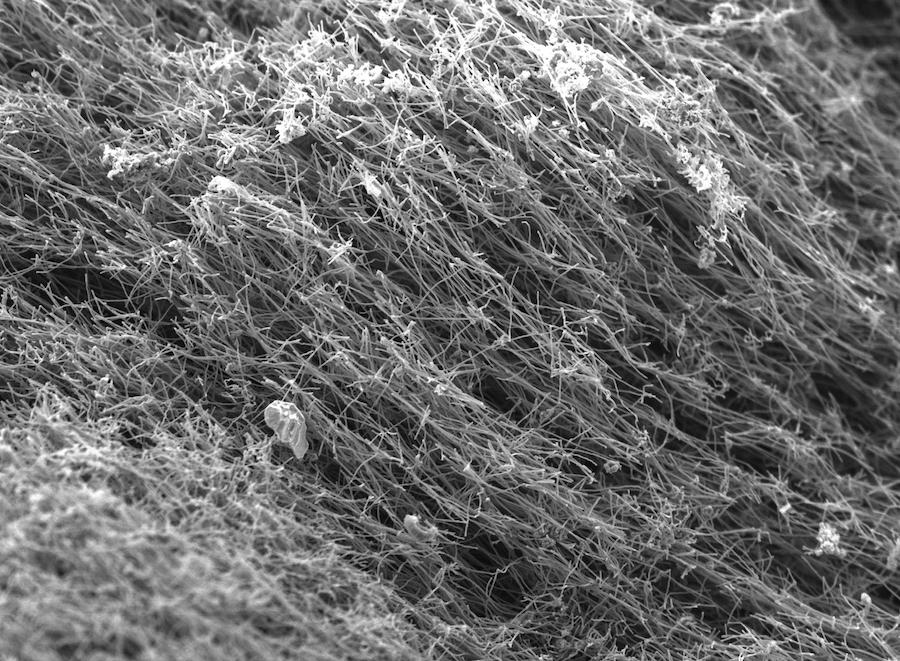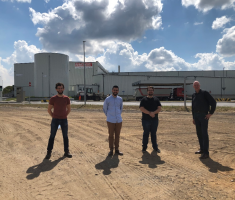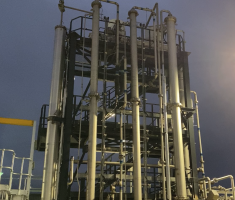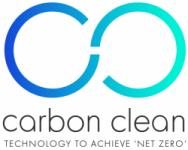Latest CCUS news in Norway’s waste-to-energy sector

Bulletin collated by Mario Ditaranto and David Nikel, SINTEF Energy Research
There's plenty going on related to carbon capture, utilisation and storage (CCUS) in the waste-to-energy (WtE) sector in Norway. NEWEST-CCUS partners SINTEF Energy Research round up some of the latest news of relevance to the industry in Europe and further afield.
The latest news certainly shows that projects such as NEWEST-CCUS and CapeWaste (Research Council of Norway project #281869 focusing on oxy-fuel combustion capture technology) are needed more than ever to aid WtE operators' understanding in order to develop and select the right technology solution for their plant – and for the greater good.
Fortum Oslo Varme’s CCS project takes important step forward
Fortum Oslo Varme’s CCS project has moved a step closer to realisation after being shortlisted for financing from the European Union’s €10 billion Innovation Fund.
The project could be the world’s first full-scale commercial CCS operation at a WtE plant and, if successful, would provide a significant boost to Norway’s Longship CCS initiative, which also includes carbon capture on cement production and associated CO2 transport and storage infrastructure.
Fortum Oslo Varme – a joint venture between the city of Oslo and Fortum and a member of the CCUS Project Network – said it was one of 70 projects to have reached the second round of the Innovation Fund’s first €1bn call.
The 10-year fund, the successor to the EU’s NER 300 programme, supports commercial demonstration of innovative low-carbon technologies, helping bring decarbonisation solutions to market. The EU’s final decision is due towards the end of 2021.
Aker Carbon Capture explores opportunities for CO2 capture at BIR’s Bergen plant
Waste management company BIR has signed an agreement with Aker Carbon Capture to explore possibilities for a future carbon capture plant at their WtE plant in Rådal outside Bergen on Norway's west coast.
BIR is one of the country’s largest waste management and recycling companies, handling waste from more than 365,000 people and businesses in seven local municipalities, which also own the company.
"We have little space, so an important focus will be the need for space for such solutions. In addition, we are a supplier of energy for district heating, so we want to look at the energy needs and the opportunity to recover energy from the CCS process," said Atle Tvedt Pedersen, BIR plant manager.
Returkraft eyeing full-scale CCS by 2030
Norwegian energy company Returkraft’s plans to deliver full-scale CCS by January, 2030, are taking shape in the form of a schedule, which includes logistics and the provision of CO2 capture and storage.
Returkraft, which provides electricity and district heating from residual waste, has chosen a membrane-based solution from Air Products and 3C's technology, which will be plant-ready in 2023.
The final choice of full-scale capture technology will be made by mid-2024, and may not be one of the solutions tested at pilot scale.
"When choosing full-scale technology, it is very important to look at costs and energy consumption. It is important to use independent studies with a high degree of expertise in technology and economics," said Returkraft's Jostein Mosby.
"We work together with the port authorities on the logistics and keep an eye on potential capture-projects at other companies in the region. When it comes to moving CO2 from Returkraft to port, transport of liquid CO2 by truck or train have emerged as the best alternatives."
Recent projects in the so-called Eyde Cluster of industries include developments on capture technology for pilot plants at Returkraft and at metallurgy company Eramet’s Sauda facility.
Carbon nanofibre testing in Bergen
Bergen Carbon Solutions is collaborating with BIR on the production of carbon nanofibre (CNF) from CO2 captured at BIR’s WtE plant in Rådal.
The companies say CNF is a “very exciting” material, which conducts electricity and is stronger than steel but lighter than plastic. They aim to being the testing campaign next year.
BIR's Atle Tvedt Pedersen said the material’s properties mean it will have “many possible applications”.
Bergen Carbon Solutions website
Industry group assesses ‘climate control’ for waste incineration in Norway
Six major players in Norway’s WtE sector have formed an industrial collaboration to progress climate action for waste incineration facilities.
The initiative, named KAN - Climate Control for Waste Incineration in Norway, includes the companies Statkraft Varme, Lyse Energigjenvinning, Returkraft, Fortum Oslo Varme, Borg CO2 and BIR.
The group’s stated objectives include an assessment of capture technologies for the WtE industry, recommendations for integrating CCS with operations, analysis of financing and business opportunities, and studies into transport, logistics and warehousing. An assessment of the climate benefits derived from the proposed technologies will also be carried out.
Image: Electron microsope (SEM, 100x100mm) picture of carbon nanofibres produced from CO2 by Bergen Carbon Solutions (with permission from Bergen Carbon Solutions)
Edited by: Indira Mann/SCCS









